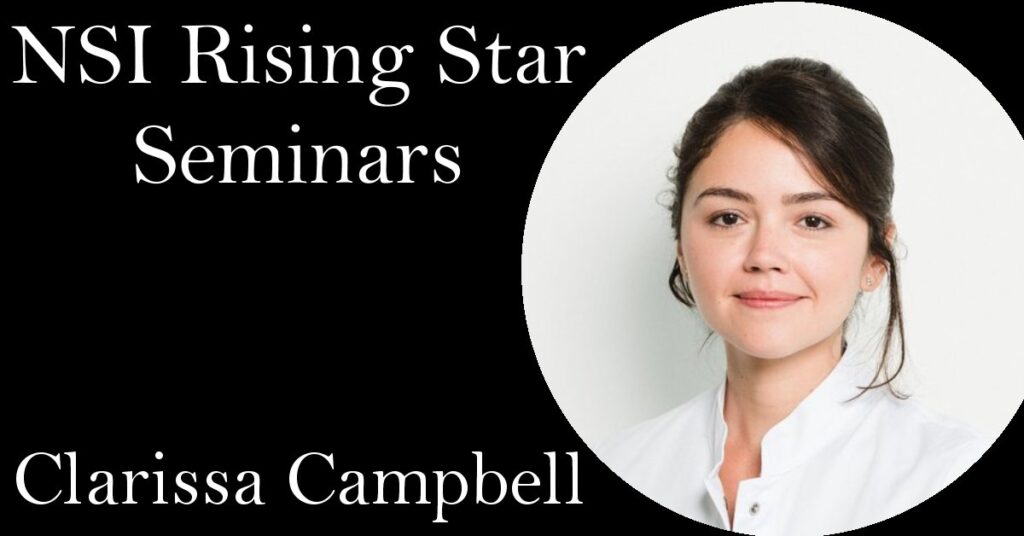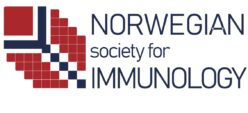
In our next NSI Rising Star Seminar, we will be hosting Clarissa Campbell (CeMM, Austrian Academy of Sciences) with a talk on “T cell regulation by bacterial metabolites”. Look forward to seeing you there!
Meeting details:
Monday 7th October at 13:00
https://uio.zoom.us/j/62979749183?pwd=l2eOW7eqdaGiBElGJaWYy2VskyWe76.1
Meeting ID: 629 7974 9183
Passcode: 237779
Title of talk: T cell regulation by bacterial metabolites
Abstract:
Intestinal microbial communities expand the functional capabilities of the host via their metabolic attributes. From energy harvest to the production of vitamins, the gut microbiota shapes mammalian physiology and is often considered a postnatally developed “organ”. Yet, the microbiome poses a formidable challenge to the immune system: How can we host trillions of bacteria without mounting an inflammatory response? Gut immune homeostasis relies on the balanced action of suppressive and inflammatory T cell subsets. Using transgenic mouse models, engineered bacteria and gnotobiotic experiments, we discovered that common products of bacterial metabolism including short-chain fatty acids and microbe-derived bile acids affect the differentiation of Foxp3+ immunosuppressive regulatory T (Treg) cells at the steady state. Further, we found that Treg cells induced in response to bacterial cues support the establishment and maintenance of intestinal microbial communities. More recently, we discovered that intestinal inflammation leads to the loss of microbe-derived bile acids, thus contributing to fuel T cell-driven pathologies. Altogether, our work uncovered a prominent role for microbial metabolites in shaping host immunity by modulating T cell responses both at the steady state and during inflammatory settings.
Bio:
Clarissa Campbell studied biology with a minor in genetics at the Federal University of Rio de Janeiro (UFRJ) and subsequently earned a master’s degree from the Oswaldo Cruz Foundation (FIOCRUZ), investigating how bacterial molecules exert immunomodulatory effects on mammalian cells via nuclear receptors, a topic she would continue to explore throughout her career. She joined the Tri-Institutional Immunology and Microbial Pathogenesis Program at Weill Cornell Medical College in New York as a graduate student where she specialized in mucosal immunology and regulatory T (Treg) cell biology. After obtaining her PhD, Clarissa Campbell remained under the mentorship of Dr. Alexander Rudensky at Memorial Sloan Kettering Cancer Center to continue her work on host-commensal interactions and pursue broader scientific questions bridging the fields of immunology and metabolism. Her research has characterized a circuit whereby microbial metabolites including short-chain fatty acids and secondary bile acids facilitate the differentiation of peripherally induced Treg cells, which in turn suppress immune responses to colonization and preserve a niche for a group of intestinal bacteria. More recently, she found that a bile acidsensing nuclear receptor contributes to the cell-intrinsic responsiveness of effector T cells to fasting. Clarissa Campbell joined CeMM as a principal investigator in July 2021. Her lab is interested in investigating how changes in microbial and organismal metabolism contribute to regulating immune-cell function.
Key publications:
- Nuclear receptor LXRβ controls fitness and functionality of activated T cells. J Exp Med. 2021
- FXR mediates T cell-intrinsic responses to reduced feeding during infection. Proc Natl Acad Sci USA. 2020
- Bacterial metabolism of bile acids promotes generation of peripheral regulatory T cells. Nature. 2020
